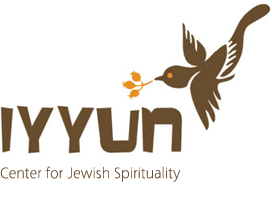The distinction is quite clear, heaven is where it is me and you, hell is me or you. Hell is where, and for that matter when, we cannot stand seeing another human beings pleasure, heaven, on the other hand, is where, and when, we are mature enough to realize that another persons enjoyment does not come at the expense of our own misery. The other persons’ success does not come in the place of our own failure.
Once in a small town in Poland, there lived a wealthy learned and pious man by the name of Reb Yankel. In this town, other than Reb Yankel all the townsmen were poor. One day, this Reb Yankel send out a proclamation inviting all the leaders of the community to a feast, promising to be a feast worthy of paradise. That evening as the leaders arrived they were escorted into the living room where they saw the table set delightfully with magnificent cutlery set for each guest. The butler than showed the quests to their seats. Sitting anxiously in their place at the table, the butler enters the room and hands Reb Yankel a bowl of hot soup. Strangely, he offers no soup for the guest. Eating his soup, Reb Yankel lifts his head and says ‘Oh, what a delicious soup, I am sure my friends, you have never tasted such a tasty soup. When he finished his soup he was brought a full course meal. Once again the guest weren’t served, and once again as he was eating he kept on remarking on how delicious the food was. Finally one of the guest could contain himself no longer, and he burst out ‘Reb Yankel have you invited us here to mock us.’ The invitation, he continued, promised a feast worthy of Paradise, and here, not only did we not get to partake in the feast but worse of, we have to suffer through watching you eat. Reb Yankel smiled, indeed, he said, this is meal is truly worthy of paradise. Do you know what paradise is, do you think that it is a restaurant where you come to eat. Paradise is a place / a state, where people love each other enough so that they can take pleasure in another persons’ happiness. In paradise, we are content watching our fellow mans’ success. There, not only are we not envious, what’s more we even feel happy for them. Now that you have all understood the paradise part of the feast, dinner can be served, enjoy.
The distinction is quite clear, heaven is where it is me and you, hell is me or you. Hell is where, and for that matter when, we cannot stand seeing another human beings pleasure, heaven, on the other hand, is where, and when, we are mature enough to realize that another persons enjoyment does not come at the expense of our own misery. The other persons’ success does not come in the place of our own failure.
In the afterlife, the Baal Shem Tov once offered; the first thing they do to the person is take their hands and encase them in a locked metal sleeve, so that they cannot bend their arms. Then, they are given a ridiculously long utensil and told that it is theirs to attain whatever they desire. Above the souls, hang great quantities of food and delights, however, because of their bound hands they cannot bring these enjoyments to their own mouths. In hell, the souls are emaciated and starving, being that their hands cannot bend, and their utensils are too long to feed themselves, they starve. In heaven, on the other hand, it is truly paradise. The souls are smiling and enjoying the various delights. In heaven each soul uses their own fork to feed the soul sitting across the room.
While paradise – Gan Eden, is a spiritual space where one experiences oneself devoid of ego, aggression, and resentment; the purity of the transcendence, the opposite is condition where one experiences the tension of knowing the need to relinquish the tenacious bound with the ego, yet all the while holding on to the status quo and not giving it up. Hell is where a soul that has become entrenched and immersed in materialistic gain and pleasure, experiences the pain of ripping away.
When a human being passes on and leaves his physical body, he assumes a non-corporeal essence which consists of his emotions and thoughts, otherwise known as an astral body. In accordance to one’s measure of integration during life is the astral body. The fate of a person, who has lived a disharmonious and misaligned life, has come to be know as Gehenom – hell. It is where the soul, operating on a fractious and disingenuous manner, is unable to receive the light of the Creator and is thus blinded. Consequently, in the place of beholding the light and basking in its majestic splendor the soul feels as it is operating in a state of complete disarray. The Zohar teaches “When a soul is about to leave this earthy realm the Shechinah appears, and the soul goes out in joy and love to greet the Shechinah. If the soul is meritorious, then the soul cleaves onto the Shechinah, if not, the Shechinah departs, and the soul is left alone.” Heaven is where the soul is aware of its unity with its Source, while the converse is to experience distance and alienation. Ultimately, the purpose of this process is so that all souls can experience the pleasure of basking in the Infinites light, and return to their Source.







